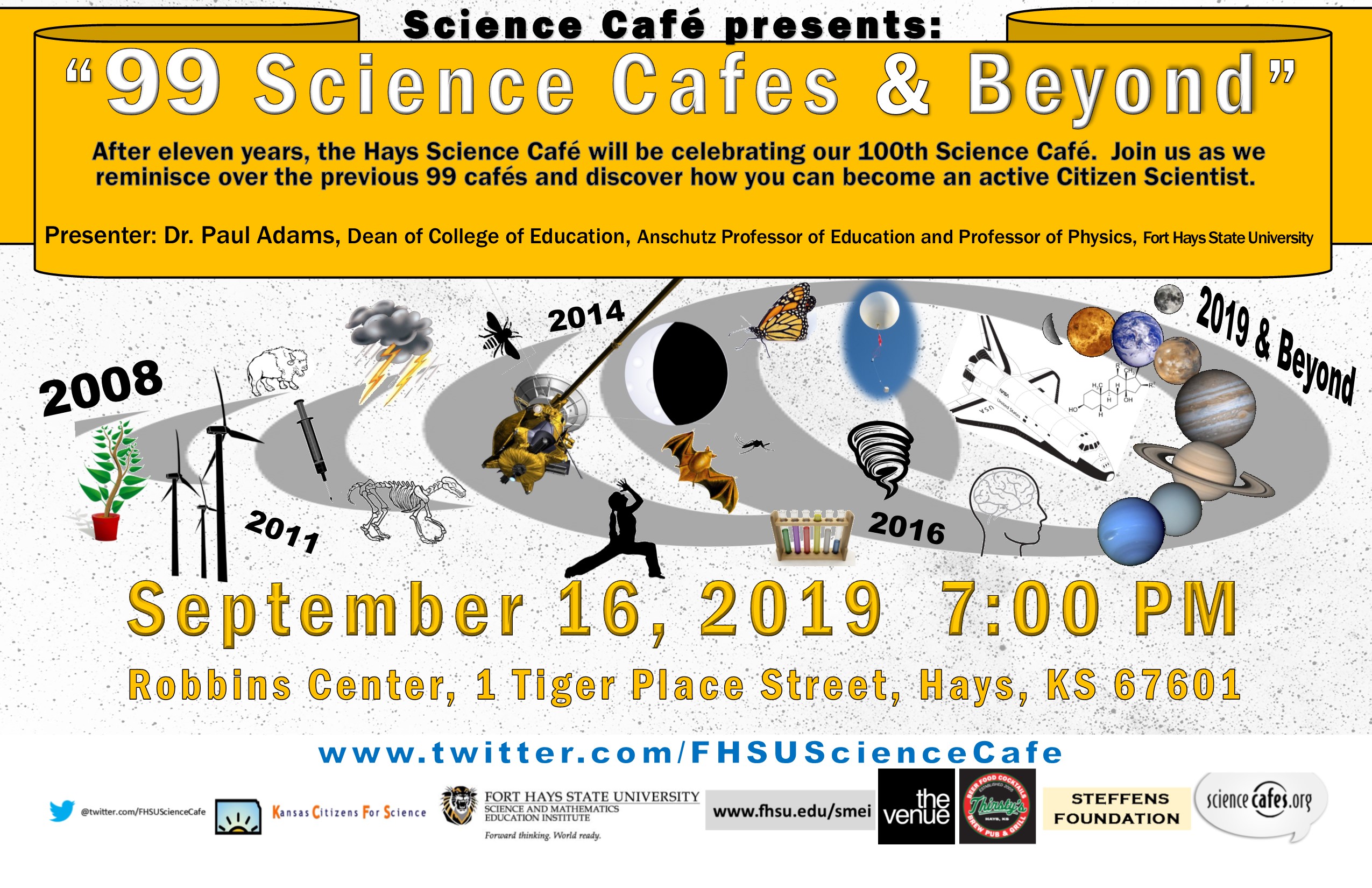By CRISTINA JANNEY
Hays Post
FHSU’s Science Cafe series will celebrate its 100th science lecture at 7 p.m. Monday at the Robbins Center.
Presenter Dr. Paul Adams, dean of the college of education, will discuss some highlights from past 11 years of Science Cafes, opportunities for average people to be citizen scientists and what to expect in the coming year from the lecture series.
One of Adams’ favorite lectures was on the movie “The Martian,” starring Matt Damon. Adams presented that lecture and discussed what aspects of the movie might be possible in reality if humans tried to live on Mars.

“That was interesting because of a lot of it was really on the edge of what we are going to be able to do,” he said.
The lecture “Mussels and Men” discussed how freshwater mussels use different appendages to fish for their food. A lecture on beekeeping prompted Adams to go out with Scout groups and put up bee houses.
In terms of citizen scientists, Adams said one of the topics in which he is interested is archeology from space.
“When we think of archeology, we think of everybody going in the field, going into Egypt and digging into the ground and whatever that may be,” he said. “Satellite imagery gives a lot back, but it is really tough to look at. To have citizens, anybody who want to go online, take a look at potential places to go and send archeologists to go find out about our past.”
Adams also uses an app called Globe at Night. This app looks at how much we have lost of our dark skies to light pollution and how does that play into urban planning. You go out at night, see what stars you can see and report it. The information is added into an international database. The app also has a legend of the constellations.
Another app, Globe Observer, enlists citizen scientists in monitoring dust storms. If you see a dust storm, you take a picture and turn that in.
“As we are warming and the climate changes, one of the predictions is that we will see an increase in activity and that has real impacts on farming and agriculture and business,” Adams said.
Yet another app asks citizen scientists to report mosquito populations. There is a federal clearinghouse with more than 500 citizen scientist projects. Some of these projects can be great for kids, Scouts, 4-Hers or school groups, Adams said.
“If you have an interest in the world in almost any area, even looking at ancient scrolls that are in Greek to figure out what those Greek letters are … It can be anything that is out there,” he said. “Scientists have discovered crowd-sourcing is a better way to go or computers don’t have the resolution to make out the images.”
Future topics that are being considered for Science Cafe topics, include cultured meat (IE meat created in a lab not from an animal), science education in northwest Kansas and other STEM developments that affect the Kansas economy.
Usually the Science Cafes are downtown or in restaurant in informal settings. For this special celebration, FHSU wanted to be able to serve cake and have space to display posters from past Science Cafes, so the event is scheduled in the Robbins Center. The event is free, and no registration is required.

